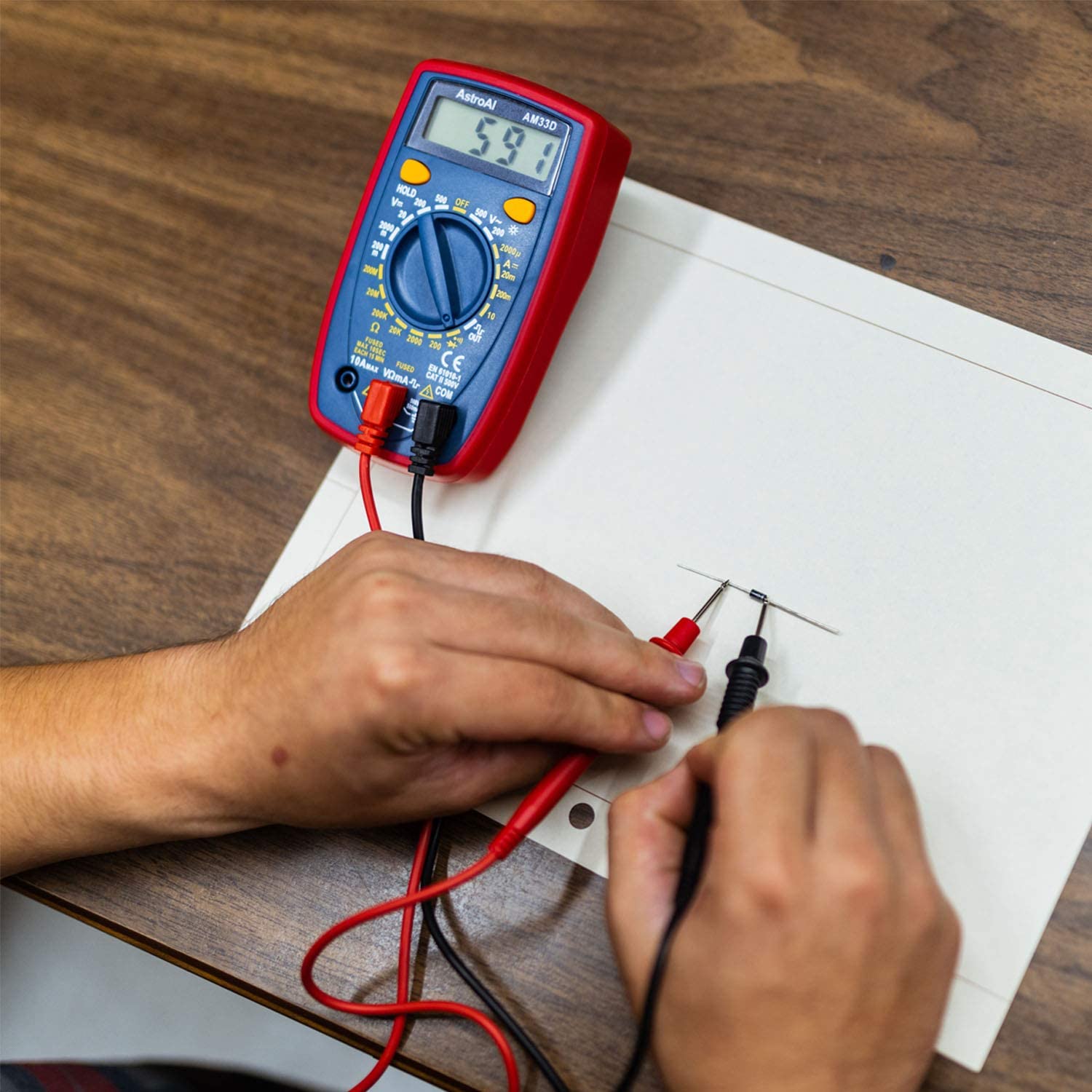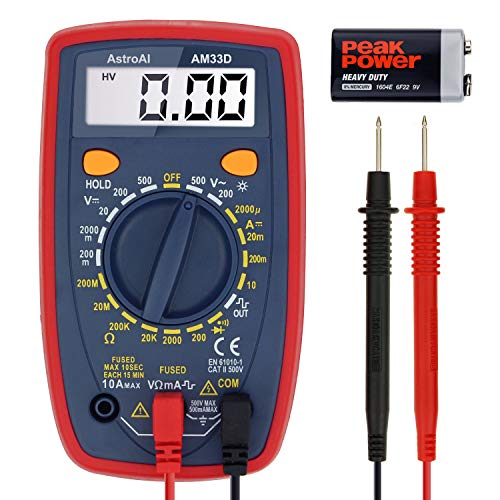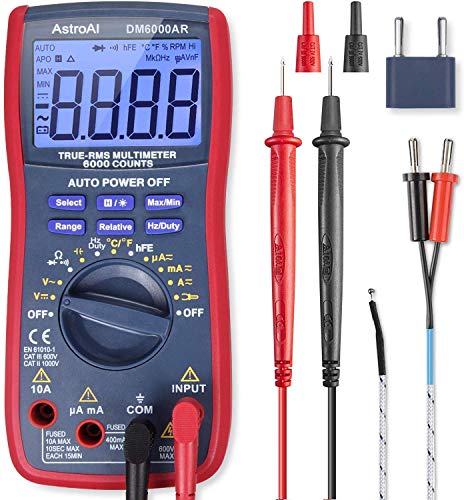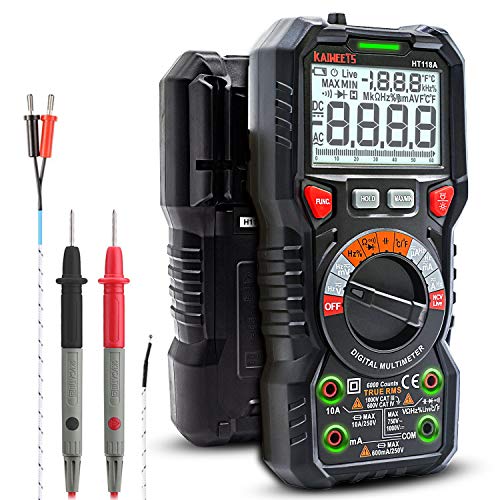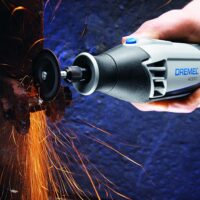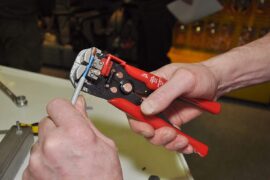Whether you’re an electrician or a household handyman, a multimeter is an essential part of your tool kit. A multimeter allows you to measure voltage, current, and resistance. There is no other tool that can troubleshoot wiring issues as excellent as a multimeter.
Multimeters have various types. Split fork multimeters can fit into tighter spaces, which is helpful when cables are run close together. A hook or clamp style multimeter makes hands-free operations easier. This is why multimeters are absolutely necessary when doing any type of electrical work.
We have made this list to make sure you get all the info you need to choose the right multimeter for you. Read all about our top five picks for the best multimeters and get to know all their specs through our in-depth findings. Also, don’t forget to hit that button to check out the great Amazon deals you can avail of for these products.
Best Multimeters Comparison & Rating
1. AstroAI Digital Multimeter
This Multimeter will give you all the functionality you need with a low price tag. It sports a very good LCD screen that is backlit for low light environments. A split fork design that makes it good for tight spaces compared to clamp or hook designs. Plus a battery indicator which warns you when the battery is low and needs replacing. You get the functionality that is affordable.
2. Etekcity MSR-R500 Digital Multimeter
This multimeter gives you very good accuracy because of quality internals. The test leads are also made well, with durable rubber that is sleeved tightly around the testers. It also has a rubber bumper that protects it from damage. There is no other option when you want a multitester that offers good practical use on a budget.
3. AstroAI DM6000AR True RMS Digital Multimeter
With this multitester, you get auto-ranging which means you don’t need to manually choose the mode you are using. This makes it very easy for beginners to use it. The build quality is better than other ones in its price bracket. You will get a very capable multimeter when choosing this one. It packs a lot of features without costing as much as the top tier multitesters, without compromising on build quality.
4. KAIWEETS HT118A Multimeter
This multimeter offers a great array of nides that allow you to troubleshoot with ease. It has DC and AC current reading capabilities while others on the list only offer DC. You also get a very well designed and functional display and button layout. Having these two makes it easy to use. If you’re a professional, there is no other choice because you get all you need at a good price.
5. WeePro Vpro850L Digital Multimeter
The WeePro Vpro 850L is a very solid choice for a more rugged user because of its protective case. Having a sampling rate of 3 times per second gives it a more accurate reading. It also has a 90-day return refund guarantee, a 10-year warranty, and lifetime support by WeePro. This budget multimeter does not compromise in any way which makes it a great choice for household handymen.
Best Multimeters - Buyer's Guide
Analog multimeters use analog dials that show the voltage, current, and resistance. These are primitive and are rarely used these days. There are still professionals that stand by analog meters because they are more sensitive than their digital counterparts. The slightest change in DC voltage will make the needle on an analog multimeter deflect. This affects the accuracy of readings and is something you might not get on a digital meter. If you are working with circuits that have highly sensitive measurements, an analog multimeter will be the right choice for your needs.
Digital multimeters (DMMs) on the other hand typically consist of an LCD screen, a knob to select various ranges, an analog to digital convertor, and internal circuitry for signal conditioning.
DMMs start at around $10 and go up to $1500. It’s all down to the brand and what features are included. The higher-priced models tend to be more durable and accurate compared to lower-priced models. Workbench multimeters are more expensive compared to Handheld DMMs.
If If you don’t plan on using it that much a lower-priced unit is probably fine. For people who plan on using it more frequently, you'll want a robust design and a more expensive meter.
Basic multimeters only have standard features like measuring AC and DC current, voltages, resistance, and capacitance. Multimeters that have higher prices more tests like a diode test, battery test, continuity test, and a transistor test. You will also get special functions such as auto range, analog bar graph, RS-232 PC interface, and true RMS. These types of multimeters are more useful than a standard multimeter.
Just like with any other tool you purchase, safety is one factor you should never overlook. If you know that you’ll be working around high voltages, determining which meter to use is crucial. Upon choosing a multimeter, you should take into consideration the amount of current that will be flowing through your conductor. You may even consider getting a cross between a clamp meter and a multimeter.
Best Multimeters - FAQs
With a range selecting switch, you can use the shunt resistances throughout the meter and use your multimeter as an ammeter.
D.C. voltage can be obtained with a multimeter by connecting different series of resistances throughout the circuit using a range selection switch. We, then, can get the required D.C. voltage by adjusting the value of resistance.
No. You can use your multimeter to measure A.C. and D.C. voltage, both current and resistance. It can measure high resistances by controlling the scale with the multiplication factor of 100 and 10,000.
The rectifier becomes useful when your multimeter is utilized to measure A.C. voltages. It converts the A.C. voltage into D.C.

